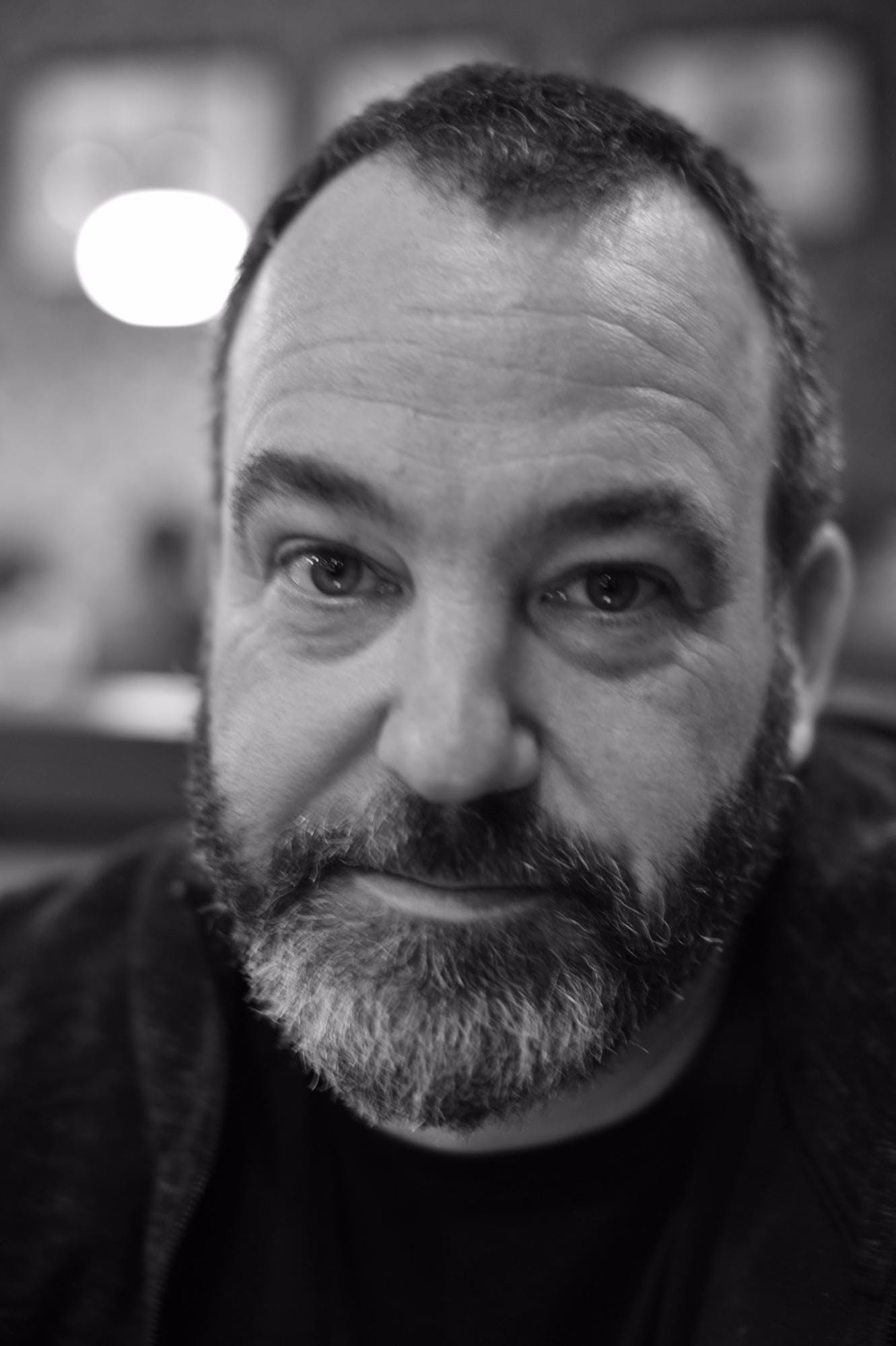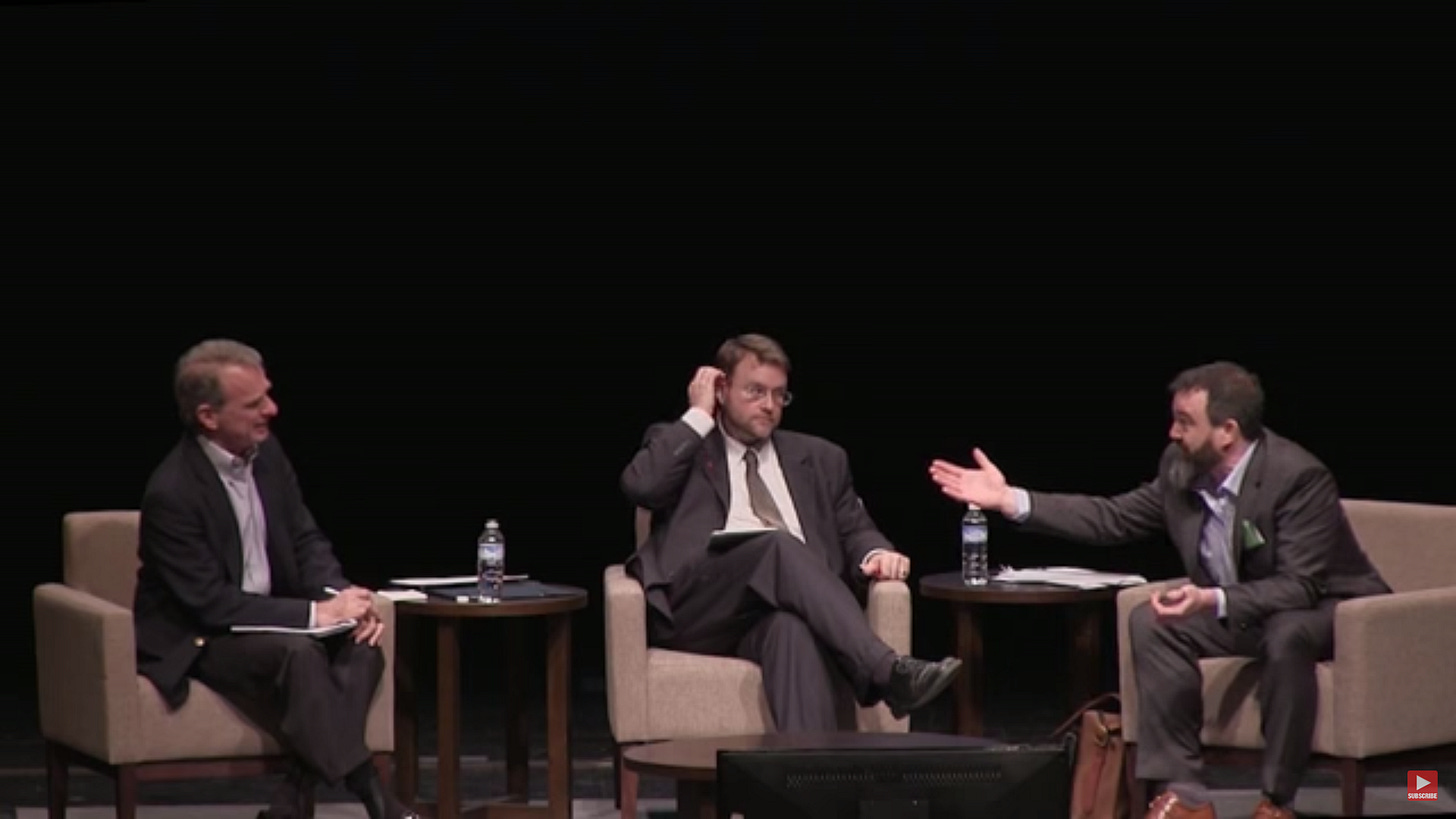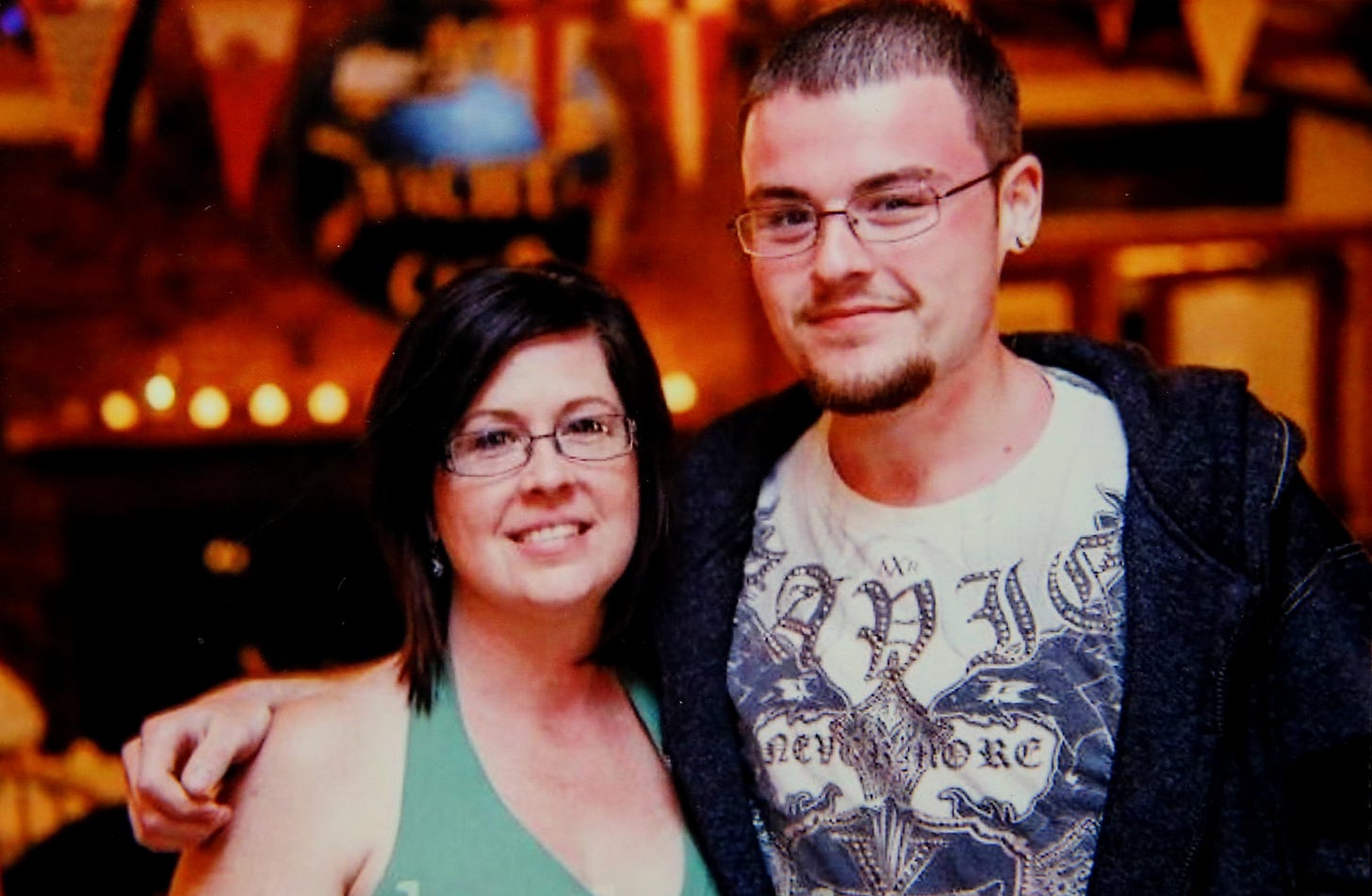Are Adventists Going To Hell?
I’m convinced Seventh-day Adventists could make much deeper inroads into populations who hate God, who are offended by what they perceive as His character, and/or who do not believe God exists (because of the outrageousness of His fabled vindictiveness)…were we to advance a clear, well-researched, biblically-grounded, short, compelling appeal regarding hell.
For example: If the General Conference were to declare 2024, “The Year Adventists Close Hell,” or something catchier, making it our focus for evangelism, this could highly advance our worldwide mission.
I dare say such a tutorial, thoughtfully written, could even serve as a discussion-opener, in informal, one-on-one conversations, small luncheons, or at cocktail parties.
But will SDAs go there: To hell?
Many, if not most, SDAs think, à la Popeye, prophecy is our spinach. (Increasingly, I doubt this, for reasons I’ve written about, and will continue to cover, here, in HERETIC.)
Some, including me, think actual spinach is our spinach; i,e, we should lead with a credible message of health, as we meet people, instead of with Daniel and The Revelation. (I still think this may be valid.)
However, there are lots of people, in better shape than the average Adventist, believing a God who burns people in hell for eternity is a monster, and not worthy of acknowledgment, let alone worship. (Of course, they’re correct about such a god.) The longer I hear unsolicited thoughts from people about their obstacles to belief in God, the more clear this disgust becomes to me.
Certainly, the No. 1 blockage is still the problem of evil: If God exists, why does He allow so much wickedness in the world?
But, in the number 2 position, far too many people absolutely cannot get past hell. Many take its crematory threat personally — perhaps anguished over the perceived fate of a beloved one, or themselves! — and not just propositionally, or theoretically.
A Loving Hell?
This began to really come home for me in 2016. The spring of that year, I watched a debate between Dr. William Lane Craig, above, and Dr. Kevin Scharp, below, sponsored by the Veritas Forum. Craig is a well-known philosopher, theologian, and easily the best Christian debater working today. Scharp, an atheist, is also a philosopher and, was then based at Ohio State, where their meeting took place.
The topic was, “Is There Evidence for God?” The format called for the scholars to present their talks, have a moderated dialogue, then take audience questions.
During their conversation, the two discussed “confidence levels” and belief; “divine psychology” and the fine-tuning of the universe, plus much more.
As my wife, Zakiya, observed, Scharp, whom I’d never seen speak before, is aptly named. He possesses an exacting mind, with an attentive, deferential spirit, both of which he used to push back on Dr. Craig’s contentions. Even though I didn’t think all of Scharp’s appeals were successful, he intensely pressed his case from multiple angles; at one point, Craig compared the barrage to “drinking from a fire hose.”
(Craig promised to later re-evaluate Scharp’s arguments, and did, via his Reasonable Faith podcast, in 1, 2, 3 separate 15-to-20-minute sessions.)
But then, Dr. Scharp said something completely unexpected.
“Professor Craig, I wanted to ask you a question about love.”
“Love?”, Craig repeated, perhaps taken aback.
“Yeah, love,” Scharp stated. “You’ve said that all Christians have a duty to love God and certainly one of the essential aspects of God’s message is, ‘If you love me and believe in me, you’re going to go to heaven, otherwise you’ll suffer eternal damnation in hell.’ If we just distill out the kind of core message there, it’s something like, ‘Love me or I’m going to make you suffer.’”
“So, I want to ask you: How can you possibly think that’s love, or recommend this kind of relationship to other people?”
Craig was taken aback. “Kevin, I don’t think that,” he responded. “I think that’s a gross caricature of Christianity, and if that’s what you think, it’s no wonder you would reject it.”
The audience laughed, then applauded.
“Good. Say why,” Scharp stated.
Craig responded with an outline familiar to Christians: “What the Bible says is that, because of our own freely chosen evil and moral wrongdoing, we find ourselves spiritually alienated from God and morally guilty before him, and culpable before him. But God loves us so much that he has sent his Son into the world as a sacrificial offering to bear the punishment for our wrongdoing, so that we might be forgiven and reconciled and come to know him and have eternal life, and it’s up to us whether we want to accept that grace or not.”
Scharp: “And if we don’t?”
“And those who refuse it,” Craig said, “they refuse his forgiveness, and so find themselves still in this state of spiritual alienation, culpability, and condemnation. And if they die in that state, they go into a state of eternal separation from God. But it’s not God who rejects them, it’s they who reject God.”
“Yeah, but God is still saying, If you don’t love me and believe in me, you’re going to go to hell and suffer,” Scharp responded. “Right?”
“That is wrong,” Craig retorted. “What he’s saying is, You’re already morally guilty and culpable. You’re drowning! But I am going to save you if you will let me. But if you repulse me, if you push me away, then God has no choice.”
Here, Scharp effectively threw up his hands. “Oh, that’s so unfortunate for God: He has no choice but to condemn the unbelievers to hell!”
A Loving Father?
I get Scharp’s frustration. It’s based in this fact: Within the conventional Christian view, in whatever way God’s efforts to reform man are shaped or described, when they fail, the outcome is eternal flames.
Forever.
Fire….
Which.
Does.
Not.
Stop.
How is such an act loving? How is it even just?
I did not think Craig had adequately addressed this specific issue; the one which is at the nucleus of hell’s offensiveness to so many. Also, I thought I had a better one.
I said as much, when I reached out to Dr. Scharp by email. After introducing myself, he and I had this brief exchange:
I thought your question to Craig about love was excellent. I also think he half-answered it.
In short, I'd agree with everything he said to you; his whole response about people choosing not to be with God, etc. However, all of it gets checked if you believe that God burns people forever in hell.
As a person practicing Seventh-day Adventism, I, as well as many other Christians, do not believe God burns people forever in hell. We do not believe hell is eternal. We believe the effects of hell are eternal, just as the effects of salvation are eternal. As you certainly know, Christians who hold this position are called annihilationists, within the context of the hell doctrine.
So, we believe, like Jude 7 says, "Sodom and Gomorrah, and the cities about them in like manner…are…suffering the vengeance of eternal fire." However, they are clearly not still burning. Sodom and Gomorrah were annihilated. The fire was eternal in the sense of the effect it produced.
In a similar sense, per the Bible, the existences of people who reject God will ultimately be completely ended. Indeed, the Bible speaks of God being a "consuming fire" (Heb. 12:29) against the wicked, not a fire in which they writhe, or are tortured. Again, the effects of this fire are eternal. God has no need or desire to torture anyone, and certainly not for eternity.
Thanks!
I agree that annihilation is better than eternal torture. However, annihilation is still pretty bad.
Imagine if your child, whom you love, tells you that he/she doesn't love you. Would you think it's justified to annihilate the child? No. Why not? Because you still love the child.
If God loves us unconditionally, then annihilation is not an option.
I had to think seriously about Dr. Scharp’s note, and not only because he’d framed it in terms of the parent / child relationship, as he, himself, was a parent with three small children. In short, he was saying, “Even if I buy an annihilationist view of hell, a Father who annihilates His children because they don’t love Him is still horrific.”
I have to admit that, on its face, this objection seems common-sensical. Often, people appeal to the description of God as our Father, but are indignant because, when they look at what God allows — e.g., natural disasters — or commands — the slaughter of the Canaanites, or hell — they say, “If God is our Father, he is the most abusive parent the universe has ever conceived.”
But is this true? In the manner Scharp posed the question, is annihilation a non-option for an unconditionally loving parent?
How Long Is Love?
I had to think about the answer a little while. When I finally responded to Scharp’s charge, I did so via a thought experiment, based in the life of a very real parent:
Thanks.
In February, NPR ran a story on Cathy Fennelly, a woman who lost her son, Paul Connolly, to heroin addiction. For eight years, she'd struggled to get her kid off of drugs. She did this until the day she found him, dead from an overdose, on her front steps.
After he died, Fennelly said the following:
"It was a sense of relief when he passed. … He wasn't hurting anymore."
One hears this a lot, when stories of families who've dealt with drug-addicted children come to the fore. Inevitably, people talk about the aching voids these horrible deaths have left. Yet, at the same time, they also speak to their relief—Fennelly's word; the sense that their loved one's torture is over.
So, suppose you could tell this mother:
a) her son could stay dead, or
b) she could have her son back, alive.
However, were he to come back to life, he wouldn't hurt for eight years, or ten years, or twenty years.
He wouldn't hurt for a hundred years, or a thousand years. He wouldn't hurt for a googolplex years, or a googolplex raised to the power of a googolplex a googolplex times years.
He would hurt for eternity; forever. He would never stop hurting. There would never be relief, not even with heroin. Whether Cathy Fennelly lived or died, her son would always be in pain.
If you had this solution in your hand, Dr. Scharp—in your left breast pocket—and could legitimately offer these options to Cathy Fennelly, would you do so?
If you did, which option do you think she would, or should, choose?
God is the Ultimate Parent—the One Who created everyone; The One Who bears infinite, arguably, first-hand knowledge of our experience; The One Who has always done so, from infinity immemorial to infinity immemorial.
From God's perspective, the problem of sin is an addiction, but one both within, and connecting to, every possible vector of human existence; thought, speech, action.
Should God, who is All-Love, let sinners, in whose presence He is a consuming fire, and whose Being, in eternity, becomes The Obvious, All-Encompassing Reality—should God let these people live, forever, even against their own will—as Dr. Craig stated?
Should he let them exist in possibly unspeakable pain, along every psychological and physical median, due to His unavoidable presence—as I state?
Should God let them live this way…forever?
As should be obvious, if you say, "Yes," in arguing against hell, you are arguing for it.
Heaven…For Whom?
In other words, given the nature of God, the nature of man, and the nature of eternity, what if hell — annihilation — is God letting sinful people off easy, because being around God, forever, would be unending torture?
Question: Have you ever felt a prick of conscience?
Well, what would a prick of conscience feel like in the presence of an unlimitedly holy God?
In 1974, music producer Quincy Delight Jones suffered a brain aneurysm. Describing the experience, he said, “It felt like a shotgun was fired inside of my head.”
When you’re, say, 5 feet from God — if such a statement has any actual meaning — does a prick of conscience feel like a shotgun being fired inside of your head?
Does it feel like biting down, hard, on the New York City subway system’s 600-volt third rail? (I’m thinking that’s got to be worse than touching a 9-volt battery to your tongue, right?)
Does it feel like sucking on the third rail…for a solid minute?
Or maybe a year?
Or, how about if you briefly experienced self-absorption?
Suppose, in the presence of God, a self-absorbed thought would inflict a feeling akin to having your limbs pulled out of their sockets by four opposed, 0.1 mph Amtrak locomotives, while, simultaneously, having your flesh torn apart by starving Bengal tigers. Suppose, in the presence of the Divine, passing self-absorption feels like that.
Or, suppose it’s worse?
I think humans completely, and wildly, underestimate the verity of God. I don’t think we understand, in any sense of the word, what is at stake in the perpetuity God is working to build. I think all of our issues with the problem of evil, for example, are build around this utter failure to comprehend how God must perfectly balance the scales of justice.
I’ve long understood the extermination of the wicked — what the Bible calls “the 2nd death” (Revelation 21:8) — as a mercy killing; a kind of euthanasia: God puts sinners to death for their own good.
It is a punishment, because, with it, sinners are deprived of communion with a now utterly unhidden God. There are probably not words, in any yet possible human language, to describe what a good this will be. The closest we’ve ever come to it may be in the conclusions of the Westminster Shorter Catechism:
Q. What is the chief end of man?
A. Man's chief end is to glorify God, and to enjoy him forever.
So, extinguishing the wicked is a punishment. But — and here, with all due and appropriate respect to the memory of Cathy Fennelly’s son, Paul, who is now at rest, and who, by faith, I believe she will see in the Kingdom, some day, I use her word — it is also a relief; a relief for the wicked.
It’s a relief because, if heaven’s streets are literally gold, and its foundations jewels, not only would the thief walk around in a continual, eternal state of arousal, forever being tempted…but he will be tempted with something, in a sense, worthless; heavenly asphalt and rebar. Plus, with each thought of pilfery, he suffers, what: A prick of conscience?
It’s a relief…but not for God. God will always bear the memory reality of every lost person. He will bear not only the knowledge of them, at every level, including, I believe, what it was like to be them…even better than they knew what it was like to be them; bear them really, and actually.
He will also bear the middle knowledge reality of all their possibilities, including all of their universal, interlocking, never-realized ones; everything they could have imaginably been or become; i.e., imaginably to God.
Finally, He will do so with infinite love for each person; a passion so profound it would make the deep, unending love of any parent for her child, in comparison, look like a mere, momentary distraction.
I’ve never had this thought before; the one I am about to express. I don’t even know if it’s correct, theologically. But, here goes:
Because of this eternal separation from so many He loves, when you really think about it, it almost seems like, in a way, the beginning of heaven, for us, will also be the beginning of hell, for God.








